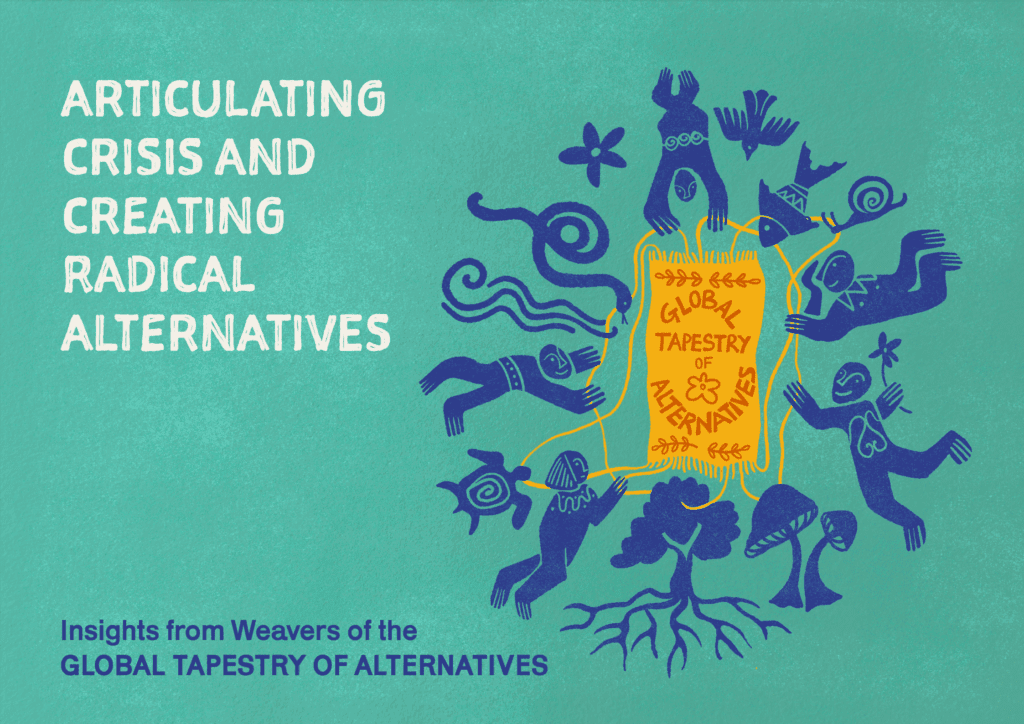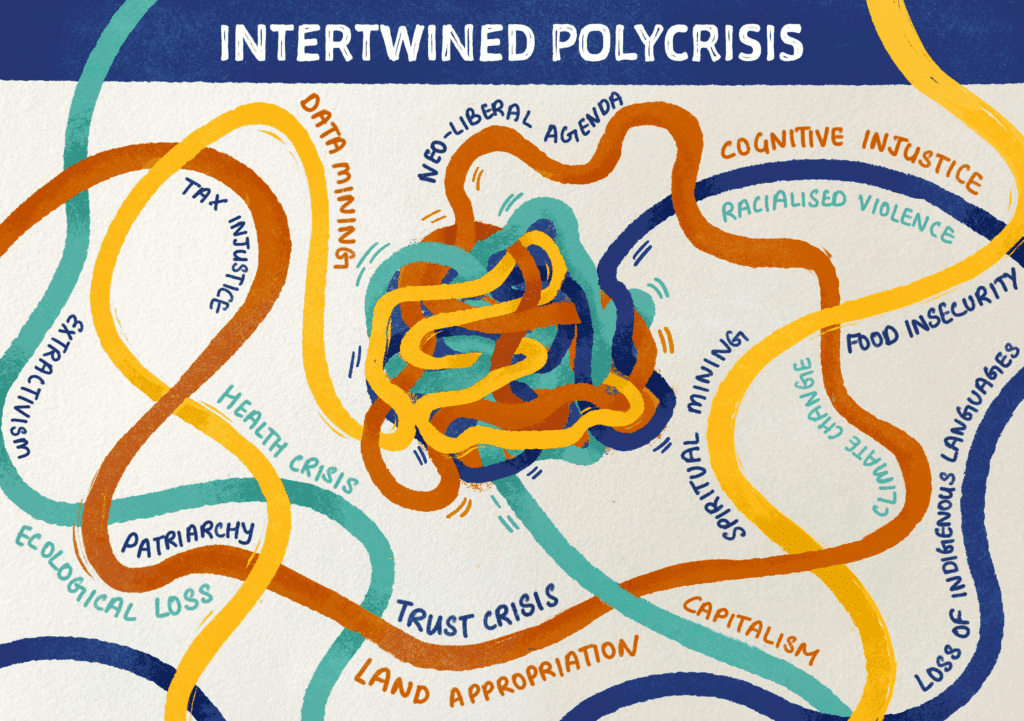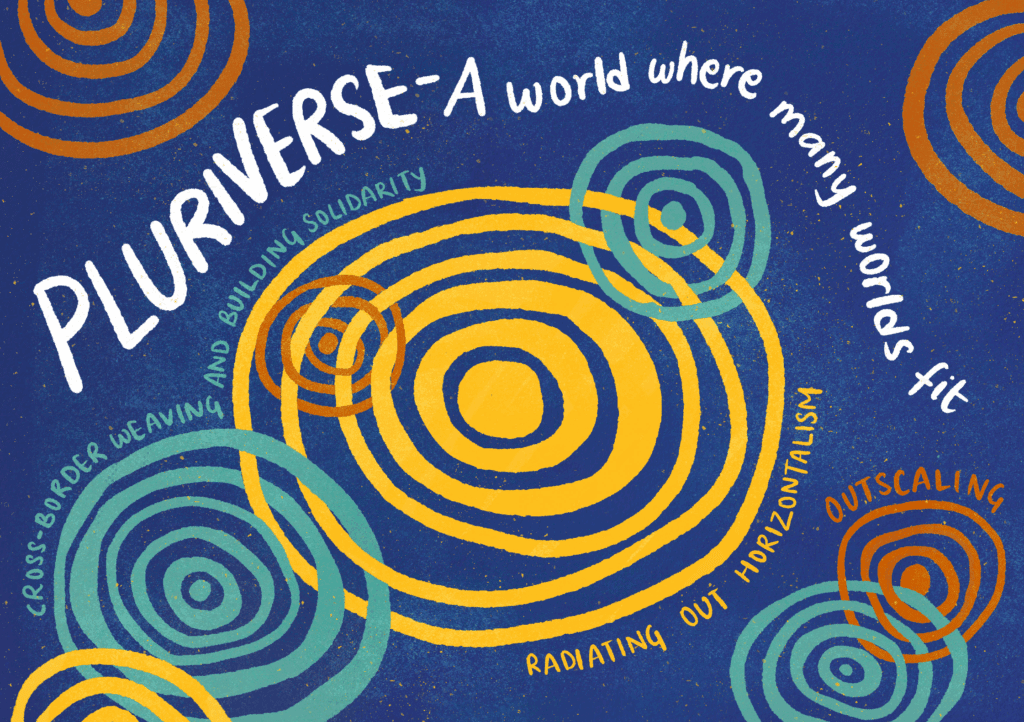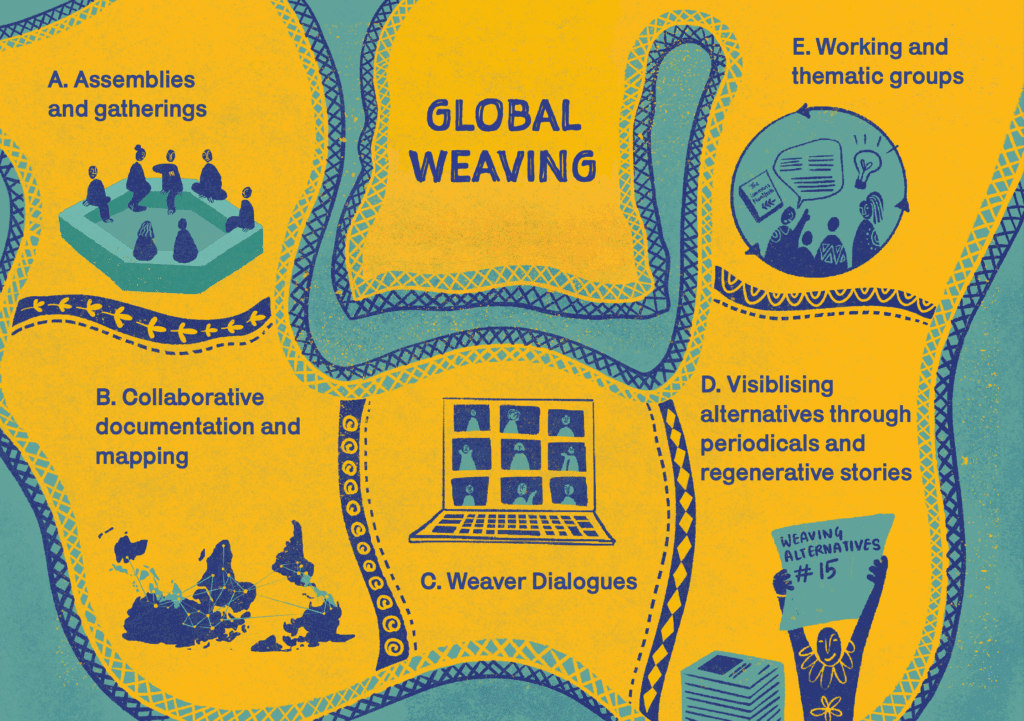In a time of overlapping crises—from ecological collapse to inequality and conflict—it’s easy to feel that the fabric of life is unraveling. But for ORA Research Grant recipients Shrishtee Bajpai and Vasna Ramasar, members of the Global Tapestry of Alternatives (GTA), these ruptures also reveal pathways to weave something new.
Their report, Articulating Crisis and Creating Radical Alternatives, offers grounded lessons from networks in India, Mexico, Colombia, and Southeast Asia. Through stories, reflections, and illustrations, the report shows how communities are not only resisting destructive systems, but also regenerating life through practices of care, sufficiency, and solidarity.

Report Artwork by Urvi Shah
From Polycrisis to Pluriverse
Bajpai and Ramasar describe the “polycrisis” as not just a sum of problems but a deeply interconnected web of injustices—capitalist, colonial, patriarchal, and extractivist.
In response, the Global Tapestry of Alternatives embraces the idea of the pluriverse: a world where many worlds fit. Across geographies, communities are envisioning ways of living that affirm dignity, justice, and ecological integrity.


Four Weavers, Many Threads
The report centers four GTA “weavers”—regional networks that link local initiatives into broad unified groups:
- Vikalp Sangam (India): convening more than 90 organizations to imagine alternatives to development rooted in equity and ecology.
- Crianza Mutua (Mexico): creating communal webs that practice sufficiency and autonomy beyond the market and state.
- Crianzas Mutuas (Colombia): defending ancestral territories while cultivating new ways of learning, healing, and co-existence.
- MASSA (Southeast Asia): forging “regionalism from below,” building solidarity across 11 countries beyond state and corporate power.
The report emphasizes that alternatives aren’t abstract concepts. They are embodied in daily practices:
- Community dialogues that ground conversations in lived struggle.
- Eco-cultural maps and calendars that link past, present, and future visions of territory.
- Intergenerational learning that bridges elders and youth.
- Community care guidelines that embed feminist and decolonial principles of respect.
- Future visioning that nurtures the collective imagination of a different world.

Threads of Common Values
Across regions, the weavers affirm common values: breaking hierarchies, eradicating racism and patriarchy, re-integrating humans with nature, and centering care and reciprocity. These are not utopian ideals but practices already shaping lives and territories.
Toward a Global Tapestry
As Bajpai and Ramasar write, weaving is not about scaling up or replicating a model. It is about outscaling—connecting horizontally, like the roots of a tree, to strengthen the ground beneath us all. Together, these networks form a living tapestry of alternatives, offering resilience and hope in the face of crisis.
How You Can Weave Change Locally
The Global Tapestry of Alternatives reminds us that transformation begins in daily practice. Here are some ways you can bring these lessons into your own community:
- Host community dialogues: Create spaces where neighbors can share stories, struggles, and visions for the future—listening deeply builds trust and sparks collaboration.
- Map your territory: Try eco-cultural mapping—draw your neighborhood’s natural and cultural features, and imagine what you’d like to protect, restore, or grow.
- Practice intergenerational learning: Invite elders and youth to exchange knowledge—bridging past wisdom with future creativity strengthens resilience.
- Center care in community life: Establish shared guidelines for gatherings or projects that emphasize respect, inclusion, and reciprocity.
- Vision together: Hold collective future-envisioning sessions. Ask: What kind of world do we want here, and what first step can we take now?
- Connect horizontally: Link with other local groups, not to scale up but to “outscale”—growing like roots that strengthen the ground beneath us all.
Even small steps like shared meals, local projects, or neighborhood circles can become threads in a larger tapestry of alternatives.
Read the full written report here and graphic report (with illustrations) here.



